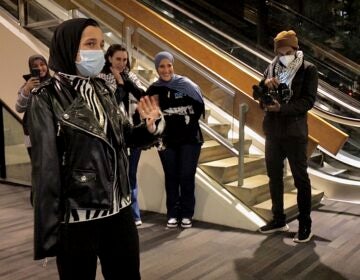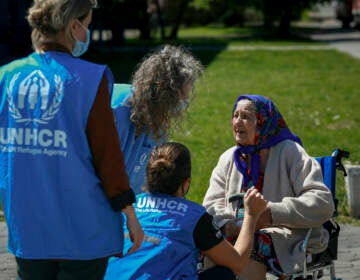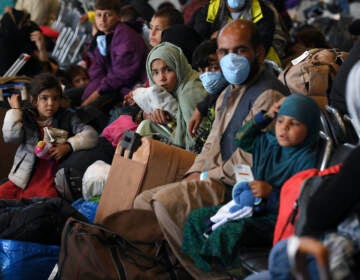Refugees remember forging new lives in Philadelphia
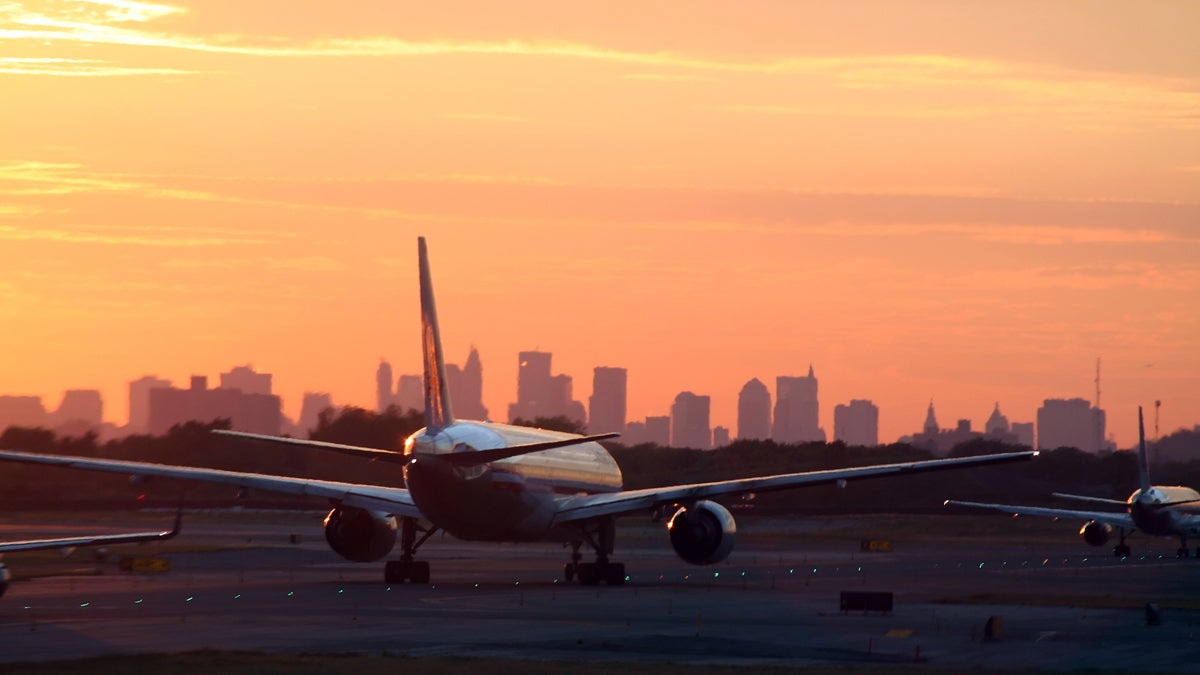
An airplane is shown at JFK International Airport in New York City. Fatemeh Mohammadi shares a story about how much her life changed starting with the day she and her family landed in the United States. (Big Stock Photo)
According to the Children’s Advocacy Project of Philadelphia, there are over 130,000 immigrants and refugees in Philadelphia. Their diverse perspectives are a boon to our city, but there are linguistic and cultural barriers that isolate many individuals and families and prevent many from finding the supports they need.
As director of immigrant affairs and language access services for Philadelphia’s Department of Behavioral Health and Intellectual Disability Services, Sarorng Sorn is helping to create new ways of providing those services and improving access for underrepresented immigrant communities.
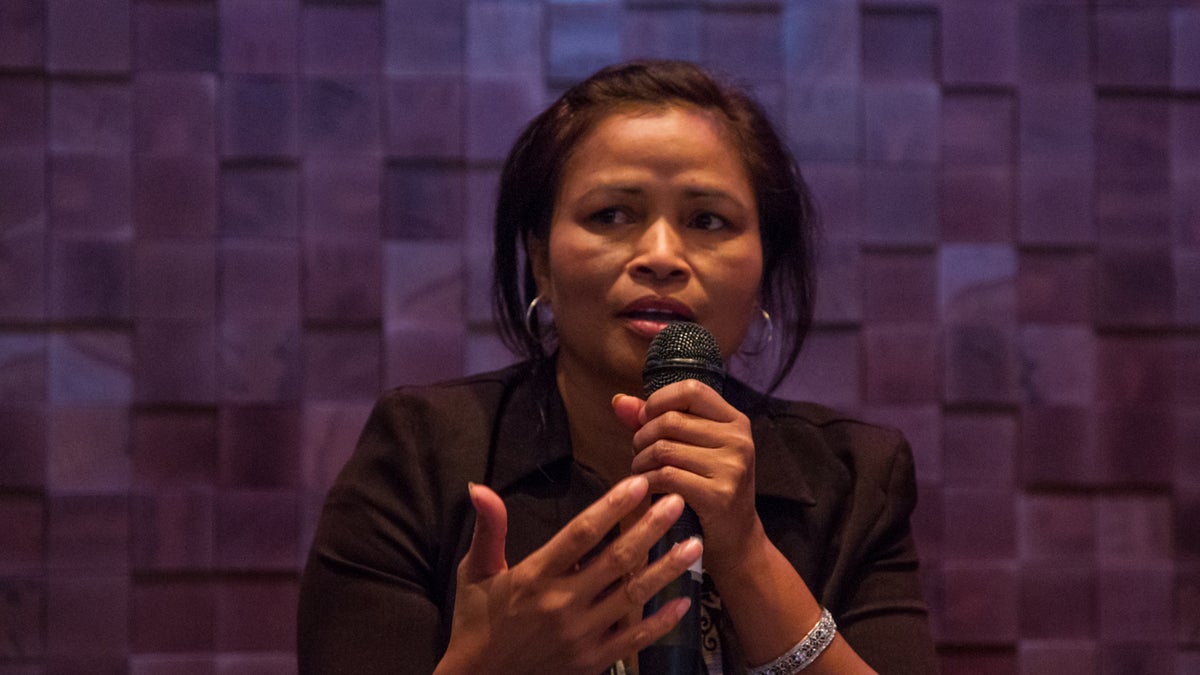
Sorn collected stories from refugees living in Philadelphia who have navigated the frequently daunting system of relocation and integration. Two lightly edited personal statements are below.
Also read an essay about refugee elders finding community as they settle into life in the United States and an essay from Sorn herself about the impossible odds she overcame in Cambodia to become a leader in her community and, in her words, “the embodiment of the American dream.”
Najila Issa
Najila Issa came to the United States from Iraq via Syria three years ago. She is the mother of three children who attend school in Northeast Philadelphia, and her husband is working in a grocery store while she is home with a baby. She attends the PRMHC Iraqi women’s program, a weekly ESL class, and family-focused art therapy for support.
Language and learning American systems was one of our biggest challenges! For my children, figuring out schools was also very hard. We didn’t know where the best place was for them to go or how the studies and environment there were going to be. It was all very overwhelming.
My younger brother was separated from me years ago and has finally reached Germany. I worry about his safety and miss him every day. We are trying to do everything we can to help him come to the United States to be with his family in Philadelphia.
I tell myself: “I have to go out! I cannot be afraid!” I was always afraid in Iraq and Syria. I cannot live in fear any more. Life must move forward and I must overcome my fears for my children. I must not be afraid. If they see me afraid, then they will learn to be afraid.
Fatemeh Mohammadi
Fatemeh Mohammadi and her family came to the United States from Iran in June 2015 as refugees.
I remember that amazing day when we landed in JFK airport in New York. It was one of the best days in my life.
After three hours, we came to Philadelphia, and my case manager took us to our house. She bought two pizzas for the five of us. We didn’t have anything else to eat for breakfast and lunch the next day. I didn’t know why they didn’t have other food for us to eat.
The first week, we went to Center City and applied for SSC, food stamps, and medical insurance. The first month was so hard. We didn’t know any person here. My case manager was always busy. She didn’t have much time for us. We wanted to go to English class, but at that time, NSC didn’t have English class, and we didn’t know other places that could help us. It was really hard until I found information from the Internet, some English classes for me and my mom and sister.
After three months we were looking to get a job, and we talked with people at NSC who help refugees get jobs. They got us an appointment, but nothing happened. I talked with some people in English class and asked them for help. Thank God I met some people in English class. They helped me and my sister find a job through Career Link. I learned so many things from them. They showed me how to write resume, how to apply for a job. The Welcoming Center and Career Link are awesome places. I’m always telling other refugees to go there, because they are helpful.
It’s not easy to go to another country where you don’t know any person, you don’t have any money or know the language. It’s really important because, when refugees are coming here, we don’t know any person. The only people who can help us are working at NCS. I hope in the future, they help other refugees better.
The first six months was really hard for me and my family. We didn’t have anyone to ask where we should to go to buy groceries or how we can find an English class, and so many things. My mom was sad she didn’t know anyone here to talk to or go out with. It was really hard for all of us, but thank God now after eight months, we found our way. I got a good job at Citizens Bank. Still we have problems, but I learned how to manage my life. I learned how to find my way. I’m really happy now. I’m preparing myself for college.
I’m sure in the future I will be at a good position. I will remember these days, and I will always try to help people who are coming here as refugees. I learned so many things during these eight months. I learned how to love people and help them. It’s a really nice feeling.
WHYY is your source for fact-based, in-depth journalism and information. As a nonprofit organization, we rely on financial support from readers like you. Please give today.


